My childhood and young adult life were painful. I was not what was expected of a male, neither to my parents nor my extended family. As a result, I was abused both physically and psychologically. Throughout much of my life, I needed to find ways to escape from the torment. I managed some relief through books. I managed the rest through games. The six games below (and the people who provided safe haven for me through these games) helped to save me from pure darkness and despair.
Dungeons & Dragons
I am the oldest child. As such, I was the live-in babysitter. My parents divorced when I was ten years old, but we kids did not find out for some time (that is a long story). What this generally meant was that I had to take care of my younger siblings, acting often more as a surrogate parent than an older brother. Taking them to the park, cooking them meals, or just hanging out with them as we attempted to navigate the world was decent most of the time. But it was not always enough to distract us from the reality of our lives.
When we lived in Holly Hill, Florida (not far from Daytona Beach), my mother acquired a taste for flea markets. She got into arts and crafts and pulled us kids into it sometimes. She started taking our hand-made items to these sales to pick up a few bucks here and there. I was a decent artist back in those days, and so I would take things there to sell as well. I had some money burning a hole in my pocket, so I went around the market looking for anything interesting. And it was there that I discovered the Dungeons & Dragons Basic Set. My brother and my sister made a couple of characters, and we pulled in a couple of neighbor kids. In the end, it was me acting as Dungeon Master, my siblings and a friend of ours (Eddie R.) that formed the core group back in those days.
Reality is a persistent nightmare for many kids, myself included. But the ability to bond with someone, to work in concert to weave stories and escape into a fantasy world where we, together, had the power to solve the problems thrown our way gave some of us the ability to look at the real-world problems we faced with hope and determination. My sister could ignore the issues my parents attempted to push onto her plate. If my brother could stand on his own and face the troubles of a whole continent of orcs, elves and otherworldly creatures, suddenly the issues in his reality no longer seemed insurmountable. Each of us learned to lean on one another, work together, and protect one another.

Win, Place & Show
When you have severe depression, anxiety, ADHD, PTSD, EID, and more, one of the odd things that happens in your brain is a loss of time. There are many years where I was at an age where I should have some recollection of events that happened. I do not. Like nature, your brain abhors a vacuum. As such, there are periods of my life where I have vivid memories of things that never happened. It has taken years of conversations with relatives, trying to piece together the sequence of events in an effort to figure out what happened and when.
For example, I know that my parents were divorced well before I discovered this fact. I know that, at some point after this discovery, my mother remarried. My step-father, Greg G., is the only man other than my biological father I have ever called ‘dad.’ He introduced me to many non-traditional board games such as Win, Place & Show. To be honest, I do not think that it was the power of the game that saved me at this point in my life, it was the man. While I had Greg in my life, I had a father figure that showed me what it was supposed to feel like. He took an interest in my life, my hopes and desires, my hobbies, and so on. He invited me to be a part of his life, his hopes and desires, and his hobbies. It just so happens that games such as this one were a big part of his hobbies. We played a lot of games together for the short time he was in my life. My mother, being the person she is, broke his heart (and mine), divorcing him only three months after they were married. When he left, we hugged and did not want to let go of each other.
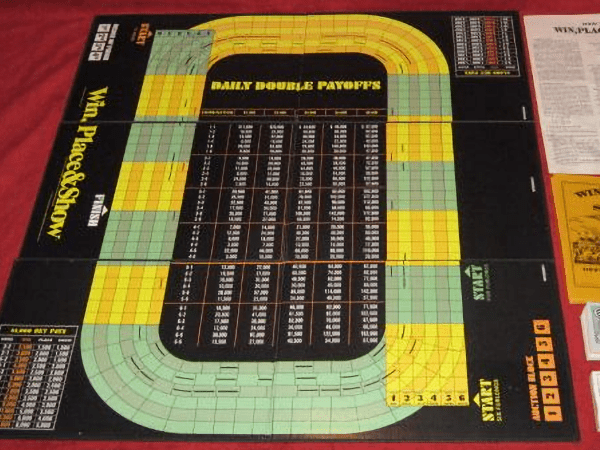
Traveller
My siblings and I were separated at some point. Part of this was caused by a series of events I still blame myself for some four decades later. I was living with our father, the others with our mother. My father is a good man, but ‘soft’ he is not. To this day, he has trouble with the idea of showing emotion, expressing himself, or otherwise being a parental figure. He has admitted that being a father was something he was neither prepared for nor grew into. Add to this constant moving and I was always the new kid in school—essentially alone.
By this time, role-playing games had become a major part of my life. This is a tough hobby to explore when you have nobody to share it with. But Marc Miller was prepared for someone like me when he created Traveller. Every single sub-system in Traveller is a game unto itself.
- Creating a character is a game where you attempt to survive your time in some service (Army, Navy, Scouts, etc.) over a number of four-year terms as you acquire skills. This is the only role-playing game I know where it is literally possible to have a character die before you are done creating it.
- Creating star systems and space sectors is a game where you watch as obvious (and not so obvious) trade routes emerge, where seemingly incompatible neighboring systems will crop up, daring you to find a way to make their relationship make sense.
- Creating ships is a game where you attempt to figure out the ways in which this ship can be optimized for its intended purpose while not being so specialized that it has no other functions. Creating trade/merchant craft is quite different from creating scout/exploration craft, which is in turn different from creating military craft.
- With a defined sector and a defined ship, Traveller has whole books dedicated to how you can use that craft to move between star systems and trade goods that are produced here and desired there. All of this can be done sans Game Master.
I cannot tell you how much time I spent with the Little Black Books creating sectors, ships, and characters as a way to pass the time when I had nobody around. Some of those would become the subject of short stories I wrote, collectively known as Star Captain (the adventures of LCdr. Greg McVey). I shared these stories with one person, a beautiful young lady from my typing class. The two of us would become close friends and writing partners.
I do not recall exactly why my mother moved to be closer to where my father and I were, but there she was again. Although she had always presented herself as a rational, open-minded individual, the moment she saw me with this friend of mine, she forbade me from spending any more time with her. When I asked why, she informed me, straight faced, it was because she “wanted white grand-babies.” Although I knew what my friend looked like, it was not until that moment that I thought of my friend as my black friend. When I refused, my mother revealed herself to be far more evil than I could have imagined and pulled me out of the school.
Traveller and those stories allowed me to keep my mind occupied, my soul grounded, as I dealt with some of the darker periods of my existence. Especially as I mourned the loss of my best friend and writing partner.
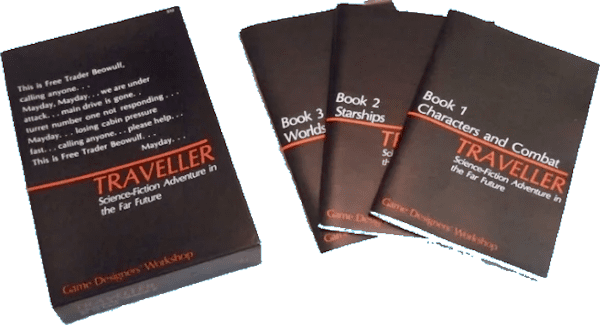
Chess
After my sophomore year, a series of events led to my dad really wanting to move back to Iowa. I was born in Cedar Rapids, but left when I was just a few weeks old. After that, I lived all up and down the East Coast (from the D.C. area to Florida), as well as places like Michigan. As I have mentioned: I was always the new kid in school. I attended Prairie High School in Cedar Rapids for my junior and senior years (achieving a decent level of stability, as compared to the rest of my childhood). It was here that I met some amazing people that would help me discover myself and grow. One of these was my Chemistry and Physics teacher, William Reineits.
Prairie, like many schools in the Midwest, had a tendency to focus on very specific forms of achievement: football, wrestling, and cheerleading led the pack. For other forms of extra-curricular activities, it was left to the teachers and the students to figure it out. Mr. Reineits funded, out of his own pockets, the school’s chess team. About half-way through my junior year, two members of the team moved out of the district. Mr. Reineits asked if I would like to join, and if I knew anyone that might also like to play chess. I knew the basic moves of the pieces, but had never spent much time with the game. Still, it seemed fun and I asked my girlfriend if she wanted to give it a try. She agreed, and so it began.
One of the things that appealed to me when it came to exploring chess was a desire to become closer to my father. He had made statements over the years suggesting that chess was a game he enjoyed in his youth. My earlier attempts at finding some common ground between us (e.g., baseball, football) had failed, as I was never going to be the athlete he wanted me to be. The fact that he rejected my attempts at chess, going so far as to tell me that I took the game too seriously, truly stung. Especially given that the exact opposite critique was offered for my attempts at sports.
Still, between the chess team and a few teachers who sparked in me a love of academics, I found my people. We were happy together, and got to be quite good. The team won a district championship my senior year. We wanted Mr. Reineits to keep it, but he insisted we were a school team and so the trophy belonged to the school. When he presented it to the principal, Ken Steine, it was placed in a trophy case in the cafeteria, behind the sixth-place regional cheerleading trophy that was easily ten times the size of our first-place prize. Sure, it was small, but we were quite proud. Rightly so, I would say.
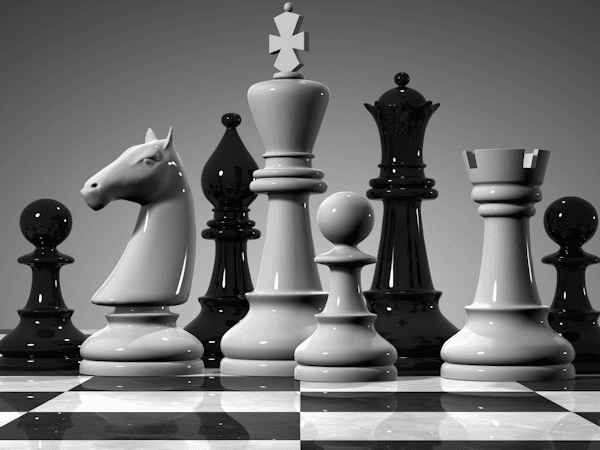
Bin’Fa
In addition to chess, I wanted (needed?) a bit of variety in my game play. Most other games were not of interest to the members of the chess team (other than my girlfriend). This went double for any game that used dice—anything that introduced randomness was a bane to these people. That seemed to change when I introduced them to Hexagony (a.k.a., Bin’Fa).
Near the end of my senior year, the chess team became something Mr. Reineits could no longer put in the time and effort needed, so it slowly dissolved. We all continued to play chess together for a while, but we eventually drifted apart. A few other people I had met in my classes had begun gathering in the guidance office to play games during our off periods and lunch hours. Hexagony was a favorite, along with such oddball games as Amoeba Wars and Strata Five.
It would be years later that I would be looking to find this old favorite, trying to rekindle some beloved memories, that I would stumble into a relationship with the game’s designer, Ken Hodkinson. Having had the opportunity to speak with him and his amazing daughter remains a high point of my life. They are both wonderful, kind, and compassionate people that have blessed my existence.
Please understand that a series of very personal and painful events would take place in my life during my senior year and into my first attempt at college. These events nearly destroyed two families (mine and my girlfriend’s). I would have to leave the University of Iowa due to the stress. I worked menial jobs for a while, then went to a series of military recruiters attempting to find some way of escaping the Midwest. I joined the Navy. This is where I learned how to be me.

Magic: The Gathering
I would say I have always been a patriotic American. The first political campaign I ever paid attention to was the election of Jimmy Carter in 1976. I was eight years old, but knew that my father was not a fan of this man. Later, I discovered a true love of America due to the rhetoric and the public image of Ronald Reagan. The only day I ever skipped school was to go out and watch President Reagan’s motorcade. Much later, as I grew to better understand the political positions and actions of the presidents, I would have far more respect for Carter than Reagan.
The point of all of this is that I knew from a much earlier age that I was likely going to join the military. My love of films like The Final Countdown meant that I knew I was likely going to join the Navy. And I did. Granted, there was more to it than pure patriotism: I wanted to escape the hell my life was becoming. The Navy provided structure and discipline, and a sense of belonging. Even if you did not know the myriad people around you, you knew that each was ready to do what was needed.
I also discovered a group of people who would become my lifelong companions. The thing that brought us together (during the times Diplomacy was not threatening our friendships) was a little card game called Magic: The Gathering. This game was a phenomenon at the time, with games being played on the mess decks of the ship almost constantly. I started playing pick up games which led to the formation of a few friendships. Others that I met and became friends with via other means, I would introduce the game to, leading to more and more time spent together. Two of those friends (Gary and Rich) became so close that they moved from their hometowns to Iowa after I left the Navy so we could all be closer together. Part of the motivation for my move to Maryland was to be closer to another Navy friend (Mike); Rich has since moved out here, and Gary is looking into his options to get out of Iowa and move closer to the rest of us.
Much of my life was in turmoil after the Navy. I do not believe I would have survived were it not for the support of these friends. We have often looked back and realised that had it not been for Magic: The Gathering, it is highly unlikely that the four of us would have gravitated towards one another and become friends at all—we are so drastically different from one another. Today, Mike is a doctor of Applied Mathematics, Rich is a doctor of Biology, Gary is an agent for the I.R.S., and I am a web developer and database administrator. Even though we have all moved on from Magic, we continue to play board games of all sorts with each other and credit that game for a set of lasting relationships.
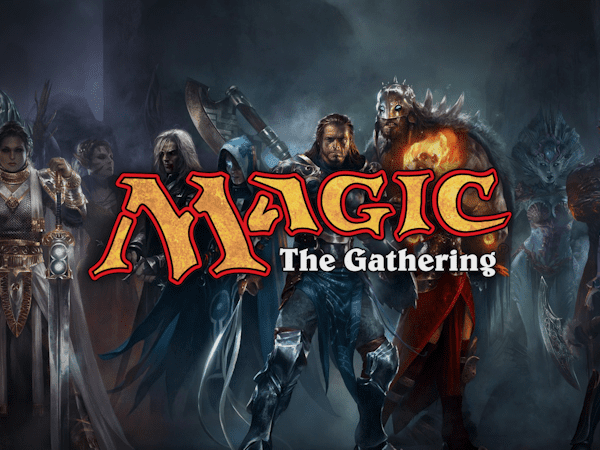
Final Thoughts
This is not the sort of article that I have seen on Meeple Mountain before. But I think it is one that needs to be in the library of information the site includes. Board games are not just a form of entertainment. They can be, in some lives, very important tools that allow someone to get through the darkness they exist within and reach a point of light and safety. Such safe havens can give a person the time they need to breathe easy and cope.
Board games can save someone’s life—both figuratively and literally. I am living proof of that.


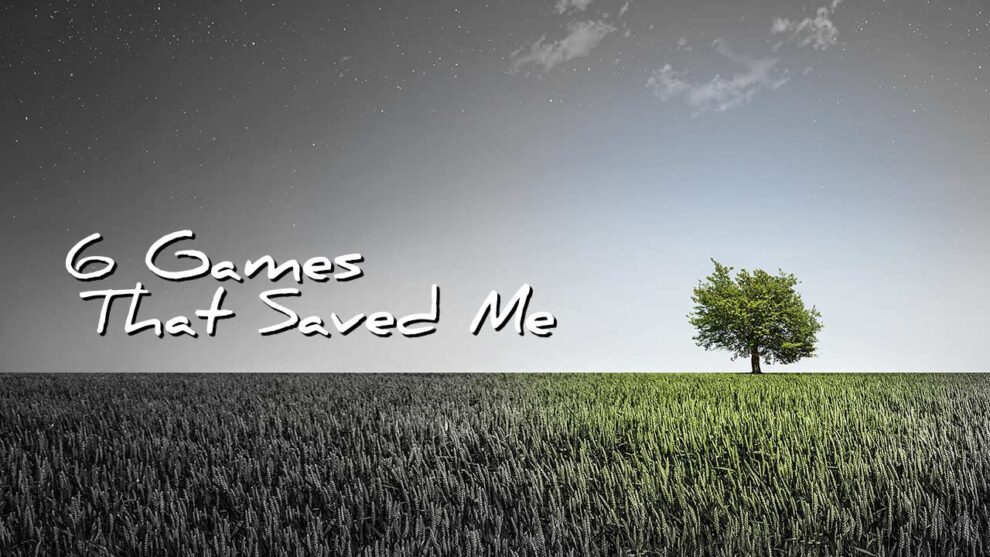
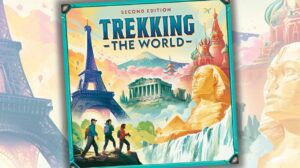

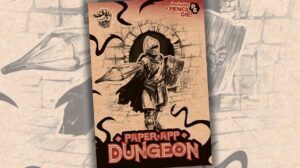
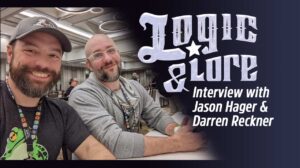




Thanks for sharing your personal stories. We all have them, whether we talk about them or not.
Thank you, Jeremy. Putting this one in the queue was a bit scary. Kinda worried about the reception, you know?
Excellent article! I write a lot about the psychological benefits of gaming. A couple times it felt like I was reading Wil Wheaton! So many parallels. I also LOVED Traveller. When I was 15, some of my friends from Scouts did a year-long campaign where we were a spy ring in WWII. My character was, predictably, a Lt Commander in the SAS. Lot’s of daring commando raids and 3am rescues and extractions of beautiful women caught by the Nazis. So much fun!
Thanks for the comment! And the exceedingly high compliment (any comparison to Wil Wheaton is high praise indeed).
I think that this is one of the most interesting posts I have read here. It is amazing how roleplaying games and boardgames have influenced us for a long periodes in our lifes.
Thanks for share with us :-).
You are most welcome!